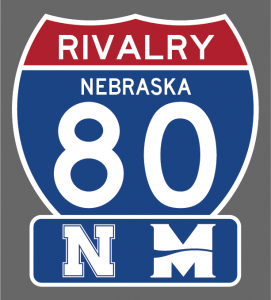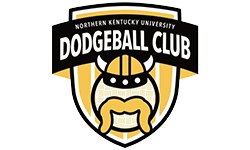Standings are aimed to be released by the end of every Tuesday.
Note: Since the publishing of the 2017-11-14 article, three forfeits were applied to the Wahoo event for team dropping out. The following obligatory Exec Board vote result was 7 of 7 in favor. Per our SOP, the forfeits were against a Ghost Team, added after the last of the matches at Wahoo as part of that event, but before the Bobcat Bash. One of these forfeits classified as a minor technical upset (exchanging 1.056, ranking 228 of 268 technical upsets).
We had three events prior to the short Thanksgiving break, with one multi-team event and two rivalry matches: a budding UNL/Midland rivalry in Nebraska, and the historic Battle of the Valleys.
In the 2018 Season, we have 32 technical upsets in 130 ranked matches (75.38% success rate) across 23 events. This past weekend, we had two technical upsets in nine ranked matches. Since 2010-09-25, we’ve played 1380 ranked matches across 222 events. 268 of those are considered technical upsets in the Gonzalez System (success rate of 80.58%). A technical upset is when a lower rated team defeats a higher rated team.
The Gonzalez System is a computer ranking model similar to Elo and is a rating exchange system based on research performed by World Rugby. It has been adapted by the NCDA to the demands of College Dodgeball, but can be tuned and customized endlessly to incorporate accurate data. It has been used to help determine seeds for the Nationals bracket since Nationals 2014, and was used exclusively for the Nationals 2017 bracket.
Technical Upset Spotlight
A technical upset in the Gonzalez System is when a lower rated team defeats a higher rated team. The overall success rate of the system is currently 80.58% based on 268 technical upsets in 1380 ranked matches. The 2018 Season has the lowest success rate of any season so far:
| Season | % Rate | Ratio |
| 2011 | 76.72% | 27/116 |
| 2012 | 82.44% | 23/131 |
| 2013 | 78.34% | 34/157 |
| 2014 | 87.43% | 21/167 |
| 2015 | 84.44% | 28/180 |
| 2016 | 83.10% | 36/213 |
| 2017 | 76.57% | 67/286 |
| 2018 | 75.38% | 32/130 |
| Total | 80.56% | 268/1380 |
Ratio being the number of technical upsets over ranked matches.
We are only halfway through the 2018 Season, with maybe three events remaining before New Years Eve. A feature of the Gonzalez system is altering a team’s rating between seasons (see Reversion to the Mean in the Spec Doc), so we can generally expect most matches to be predictable at any point in the season. With this feature, “first halves” of a season tend to be fairly close to their end of season Success Rate:
| Season | % Rate | Ratio | Diff |
| 2011 | 72.41% | 8/29 | -4.31% |
| 2012 | 82.86% | 6/35 | 0.41% |
| 2013 | 81.67% | 11/60 | 3.32% |
| 2014 | 85.37% | 12/82 | -2.06% |
| 2015 | 85.87% | 13/92 | 1.43% |
| 2016 | 83.15% | 15/89 | 0.05% |
| 2017 | 76.47% | 28/119 | -0.10% |
| 2018 | 75.38% | 32/130 | N/A |
Diff being the percent change between the whole season success rate and the success rate of the first half. On average, this first half of the 2018 Season is off by a tiny 0.18%, or 9 times in 5000. We should probably expect this season to continue to be as predictable as it has been so far: about three out of every four matches. That’s also easier to accept when we’ve had as many games played this season (130) as many previous entire seasons.
On to this past weekend’s [statically normal] technical upsets:
BW def MC 8-0
33.874 def 36.826, exchanging 1.295
One of the larger upsets in the past few weeks, the lowest rated BW set itself against a still untested Marietta. MC was only able to play three games last season, so their rating is still provisional at the time of this match. As mentioned in previous weekly updates, it is often the case we see technical upsets occur when a established team (ranked lower than the Initial Rating) faces a new team (which just received the Initial Rating). This is the same case here. BW has a lot more comparative experience and was able to carry though on this technical upset over Marietta. This technical upset ranks 102 in 268, in the 61st percentile.
Miami def MC 8-0
37.295 def 37.885, exchanging 1.059
We see another technical upset by Miami as they float to a more appropriate rating for their skill. They are really coming around from last season. This would also be Marietta’s 4th game across their history, so again their rating should be treated as provisional. This fell as a closely rated technical upset, ranking 227 of 268 technical upsets, in the 15th percentile.
Net Rating Changes
| Rating Changes | Pre | Post | Change |
|---|---|---|---|
| Ohio | 37.697 | 39.716 | 2.018 |
| Miami | 37.295 | 38.218 | 0.923 |
| UNL | 38.147 | 38.979 | 0.832 |
| GVSU | 53.235 | 53.986 | 0.750 |
| BW | 34.449 | 34.397 | -0.052 |
| SVSU | 46.404 | 45.653 | -0.750 |
| Midland | 37.468 | 36.636 | -0.832 |
| MC | 37.885 | 34.996 | -2.889 |
Ohio has the largest boost this weekend after posting a 3-0 record against opponents they were slated to defeat: BW (exchanging 0.575), Miami (0.908), and MC (0.535). Miami is again rising, posting another net rating increase in a 2-1 weekend at the Bobcat Bash. Both of these two teams are perfect examples of bottom ratings increasing as these two teams prove they are better than their past performances. The system is adaptive, and while at one point they were the minimum rating in the League, Ohio and Miami have proven they aren’t those bottom rated teams through actual performance.
Marietta now has six games in their history after this weekend, so we can consider their provisional rating period mostly over. They fell 0-3 to their fellow regional opponents, and posted a negative rating change which included two upsets exchanges. As is the overwhelming case of new teams, they are learning. And when you’re towards the bottom every win you get will be an upset exchange, making it easier to jump teams.

I can only hope that the historic Battle of the Valleys serves as a sort of template for the budding rivalry between Nebraska teams UNL and Midland. Battle of the Valleys ranges back to the 2008 Season with SVSU’s induction match on 2007-09-27 against GVSU. They even had a proto-BotV scrimmage on 2007-04-21 following Nationals 2007. Though I think it is a start of a beautiful friendship between UNL/Midland, because that’s how the Midway Conference teams tend to operate. At the least. I’m surprised it’s taken this long for League to claim an I-80 event title, but I’ll take the accolade for my home region.
Though, don’t ask me why it’s not named Route 77 Rivalry since that US 77 looks like the main route between Fremont and Lincoln… I just run the spreadsheets.
Ratings, sorted.
| Mov. | Rank | Rating | Team |
|---|---|---|---|
| — | 1 | 55.899 | CMU |
| — | 2 | 53.986 | GVSU |
| — | 3 | 48.483 | JMU |
| — | 4 | 47.853 | BGSU |
| — | 5 | 47.682 | Kent |
| — | 6 | 47.240 | Towson |
| ↑ from 8 | 7 | 46.269 | UK |
| ↓ from 7 | 8 | 45.653 | SVSU |
| — | 9 | 44.227 | UWP |
| — | 10 | 43.868 | MSU |
| — | 11 | 41.632 | VCU |
| — | 12 | 41.525 | PSU |
| — | 13 | 40.502 | UNT |
| — | 14 | 40.139 | WKU |
| — | 15 | 40.020* | ZAG |
| — | 16 | 39.980* | OS |
| ↑ from 26 | 17 | 39.716 | Ohio |
| ↓ from 17 | 18 | 39.165 | UNG |
| ↑ from 22 | 19 | 38.979 | UNL |
| ↓ from 18 | 20 | 38.586* | UWW |
| ↓ from 19 | 21 | 38.557* | NIU |
| ↓ from 20 | 22 | 38.404 | OSU |
| ↓ from 21 | 23 | 38.269* | SIUE |
| ↑ from 29 | 24 | 38.218 | Miami |
| ↓ from 24 | 25 | 37.803 | UMD |
| ↓ from 25 | 26 | 37.722* | Pitt |
| — | 27 | 37.599 | DePaul |
| ↑ from 30 | 28 | 37.028 | SU |
| ↓ from 28 | 29 | 36.636* | Midland |
| ↑ from 31 | 30 | 36.315 | Akron |
| ↑ from 32 | 31 | 36.169 | NSU |
| ↑ from 33 | 32 | 35.569 | UVA |
| ↑ from 34 | 33 | 35.442 | GSU |
| ↑ from 35 | 34 | 35.181 | CSU |
| ↓ from 23 | 35 | 34.996 | MC |
| — | 36 | 34.397 | BW |
Movement as of 2017-11-14
* denotes a provisional rating (< 6 matches)
After the winter break, the * will also be applied to any team that has not played three games this season, the required minimum games needed to qualify for Nationals.
*witty winter is coming subhead* With just one weekend left of events we will enter the traditional Winter break. Historically, very few games have ever been played in the month of September. Being on break is probably the significant reason we don’t see games; I’m just still not convinced this is an adequate reason we don’t see any games during December. Anyway, we’ll see three events scheduled for the first weekend of December at BW, GVSU, and JMU. Remember to ease yourselves back into dodgeball after the winter break, so you don’t break your arms.
Your Input. Just as the system allows technical upsets to adjust ratings and improve the overall predictability, so to I welcome input in order to improve the system as a whole. What are your thoughts? Each week I try to write a bit about the system using the real examples we had occur that weekend. I also take special attention to explain concepts as if there were new readers coming into this article, or dropping explanations to previous work. Feel free to drop me a message, I’m always happy to answer any questions. See you next week.
Please keep in mind that there is a Exec Board vote scheduled on the NCDA Ranking Algorithm; so the Gonzalez system as it appears before you today may or may not be the single system we use for Nationals 2018 at VCU. We’ll release information on the vote as soon as it comes up.
See the Resource Center for more documentation.
Records, Master Spreadsheet: 2005-Present
Records, Individual Docs: 2011, 2012, 2013, 2014, 2015, 2016, 2017, 2018
Systems: Gonzalez Current, Gonzalez Old, Perrone, Champ, LieblichSpec Document: Gonzalez System Spec Doc

























